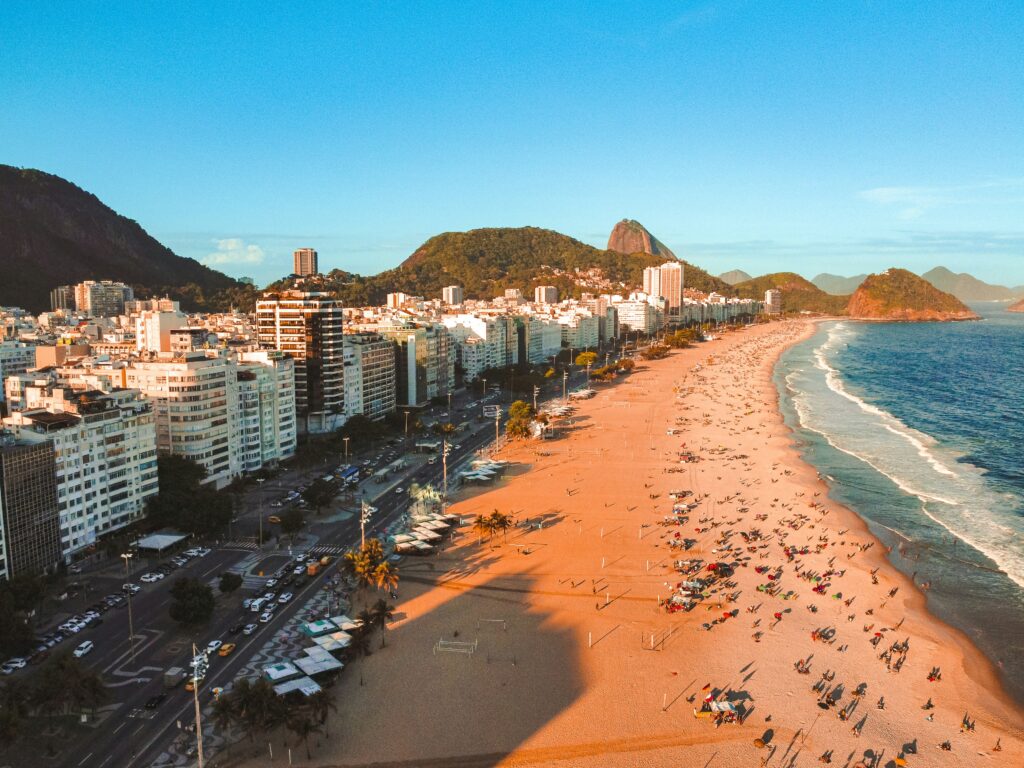
When I first landed in Brazil, I was excited but also nervous. I didn’t speak much Portuguese. As I walked through the bustling streets of Rio de Janeiro, I couldn’t help but feel overwhelmed. Would I be able to communicate? Would I miss out on experiences simply because I didn’t know the language? These questions floated in my mind, and maybe they’re on yours too. Let’s tackle them together.
This post is all about navigating the language barriers in Brazil. Do you really need to speak Portuguese? Is it a must for a good trip, or can you get by without it? We’ll explore these questions and offer practical tips to make your journey smoother.
Understanding the Importance of Language in Brazil
Here’s the thing: Brazil is a large country with a rich culture. Portuguese is the official language. Though many people in the tourist areas speak some English, it’s often limited. In smaller towns and local spots, English speakers can be rare. This might create challenges, but it also means you get to experience the true essence of Brazil.
Connecting with Locals
Communicating in Portuguese opens doors. It helps you connect with locals on a deeper level. Asking for directions in Portuguese or ordering food in the local lingo can lead to delightful conversations. People appreciate your effort, and it often leads to warm interactions.
For example, I remember chatting with a street vendor in São Paulo. My broken Portuguese led to him sharing stories about his life and the city. I walked away with not just food but a memorable experience. You can have moments like that too if you try.
Can You Get By with English?
But here’s the problem: relying solely on English can be frustrating. In tourist hotspots like Rio or Salvador, you’ll find English menus and some English-speaking staff. But, as you venture off the beaten path, things change.
Choose Your Destinations Wisely
If you’re sticking to major cities, you’ll do fine with English. Many tours offer guides who speak English. Hotels in tourist areas often have English-speaking staff. So, if your itinerary is city-heavy, you may be okay.
However, if you plan to explore smaller towns or rural areas, English proficiency drops significantly. Expect language barriers when trying to engage with locals or read signs. My advice? Learn some basic phrases. It shows respect and will help you navigate better.
Key Phrases to Learn
Here are some essential phrases you might want to memorize:
- Olá (Hello)
- Por favor (Please)
- Obrigado/a (Thank you – masculine/feminine)
- Onde fica…? (Where is…?)
- Quanto custa? (How much does it cost?)
These phrases can go a long way. It’s amazing how much of a difference they make in your interactions.
Tech-Savvy Solutions
Feeling concerned about communication? There’s good news. Apps can be a lifesaver in these situations. Tools like Google Translate can help bridge gaps when you’re in a pinch. Just type or speak what you want to say, and the app translates it for you.
But remember, technology isn’t foolproof. If possible, use it as a backup, not a primary tool. The internet might not always be available, especially in remote areas.
Using Gestures and Body Language
Don’t underestimate the power of non-verbal communication. Gestures, nods, and smiles can be incredibly effective. Even if you can’t find the right words, you can often convey what you need to say through gestures.
For instance, if you’re trying to order food, point to what you see on the menu or use your phone to show what you’d like. You’ll find that people respond positively to your efforts, even if the conversation is a bit clumsy.
Local Knowledge and Cultural Nuances
Here’s another benefit of learning some Portuguese: it helps you understand cultural nuances. Language is tied to culture, and knowing basic phrases can lead to deeper understanding.
For example, the Brazilian way of greeting people can vary. A simple “Oi!” goes a long way in making you feel a part of the local scene. Understanding greetings and pleasantries helps you blend in better.
Take a Class or Use Language Apps
If you have time before your trip, consider taking a basic Portuguese class or using language apps like Duolingo or Babbel. Even a few weeks of practice can enhance your experience and boost your confidence.
This might sound daunting, but trust me, it’s worth it. You’ll enjoy your trip even more when you can express basic needs and engage with locals.
Final Thoughts
So, do you need to speak Portuguese in Brazil? The answer is nuanced. You can definitely enjoy your trip without fluency, especially in tourist areas. But understanding and speaking some Portuguese can enrich your experiences. It helps you form connections that are often missing when you only rely on English.
Remember, Brazil is more than its landmarks. It’s about the people, the culture, and the moments you create. Step out of your comfort zone, learn a few phrases, and embrace the local culture. You’ll leave with unforgettable memories.
Happy travels!
**Related Reading:** – [Related: How to Plan a Solo Trip on a Budget] – [Related: Top Destinations for First-Time Solo Travelers] **#SoloTravel #Speak #Portuguese #Brazil #Travelers #Guide #Navigating #Language #Barriers**